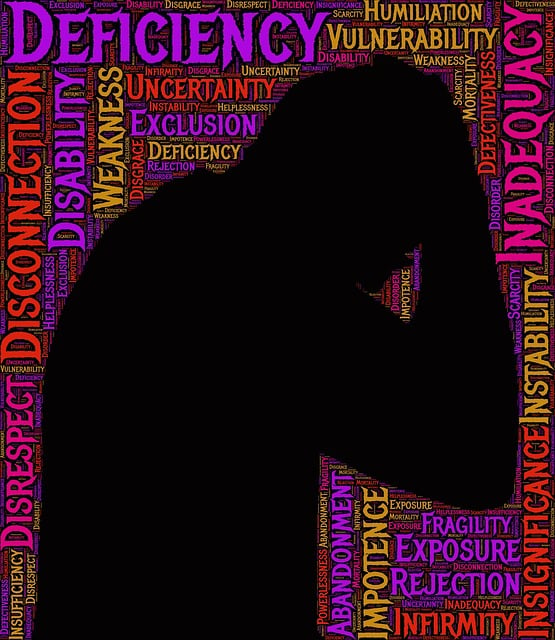In Highlands Ranch, Crisis Intervention Teams (CITs) using specialized techniques and training from local developmental disability therapy practices effectively manage mental health crises, especially for individuals with unique challenges. These programs, offered by Highlands Ranch Developmental Disability Therapy, enhance community safety, public awareness, and emotional literacy through holistic approaches like AAC methods, emotional intelligence development, and burnout prevention strategies. Measuring success through pre/post-training assessments and follow-ups ensures CITs are adequately prepared to handle crises, creating a supportive environment for all residents.
In Highlands Ranch, Crisis Intervention Teams (CITs) play a pivotal role in managing mental health crises among individuals with developmental disabilities. This article explores the critical importance of comprehensive training programs for these teams, delving into their impact on effective crisis management. We examine key components of Highland Ranch Developmental Disability Therapy, strategies to build resilient community support systems, and methods to measure the success of crisis intervention training. Understanding these elements is essential for enhancing the well-being of individuals in our communities.
- Understanding Crisis Intervention Teams: Their Role and Impact in Highlands Ranch
- The Importance of Training Programs for Effective Crisis Management
- Key Components of a Comprehensive Developmental Disability Therapy Program
- Strategies for Building Resilient Community Support Systems
- Measuring Success: Evaluating the Effectiveness of Crisis Intervention Training
Understanding Crisis Intervention Teams: Their Role and Impact in Highlands Ranch

In Highlands Ranch, Crisis Intervention Teams (CITs) play a pivotal role in addressing mental health crises within the community, with a particular focus on individuals living with developmental disabilities. These specialized teams consist of trained professionals from various backgrounds, including therapists, social workers, and first responders, who work collaboratively to provide immediate and effective support during distressing situations. By integrating Highlands Ranch developmental disability therapy practices into their training, CITs are equipped to handle the unique challenges faced by individuals with developmental disabilities, ensuring a tailored and compassionate response.
The impact of these teams is profound, fostering safer communities and enhancing the well-being of vulnerable individuals. Through Crisis Intervention Guidance and Risk Management Planning, mental health professionals gain invaluable skills for de-escalating high-risk scenarios while instilling a sense of confidence in their abilities to make critical decisions. This training empowers them to navigate complex situations, ultimately reducing the reliance on law enforcement and promoting more positive outcomes for those experiencing a crisis.
The Importance of Training Programs for Effective Crisis Management

In today’s fast-paced and complex world, effective crisis management is more crucial than ever. Training programs play a pivotal role in equipping individuals with the necessary skills to handle crises, particularly those involving developmental disabilities like those seen in Highlands Ranch Developmental Disability Therapy. These structured interventions go beyond mere reaction; they foster proactive problem-solving, enabling professionals to navigate challenging situations with confidence and empathy.
Well-designed crisis intervention team training programs are instrumental in enhancing public awareness campaigns around developmental disabilities and promoting conflict resolution techniques. By mastering mood management strategies, participants gain the ability to deescalate tensions and provide timely support. Such programs not only benefit direct care workers but also family members and community members who interact with individuals facing crises, ultimately contributing to a more resilient and supportive environment for those in need.
Key Components of a Comprehensive Developmental Disability Therapy Program

A comprehensive Highlands Ranch Developmental Disability Therapy program is crafted with several key components that foster growth and inclusion for individuals with developmental disabilities. First, Communication Strategies are integral to enabling participants to express themselves effectively, enhancing their social interactions, and promoting understanding between them and their support network. These strategies may include augmentative and alternative communication (AAC) methods tailored to each individual’s unique needs.
Additionally, incorporating Emotional Intelligence and Self-Awareness Exercises into the therapy regimen helps participants recognize and manage their emotions, build self-confidence, and develop empathy for others. Such exercises can range from simple mood tracking to more complex role-playing scenarios designed to cultivate emotional literacy. Through these components, Highlands Ranch Developmental Disability Therapy aims to equip individuals with the tools they need to thrive in their daily lives and communities.
Strategies for Building Resilient Community Support Systems

Building resilient community support systems is a key strategy to effectively mitigate crises and promote long-term well-being. Highlands Ranch Developmental Disability Therapy emphasizes the importance of fostering strong social connections and networks that can provide essential Trauma Support Services. By creating supportive environments, individuals with developmental disabilities can enhance their coping mechanisms and resilience, which are crucial during challenging times. This involves encouraging community engagement and participation, where peers and neighbors become a source of comfort and assistance.
One effective approach is to implement Burnout Prevention Strategies for Healthcare Providers within the community. These strategies not only benefit professionals but also empower individuals with disabilities and their caregivers. Boosting confidence through training and education allows everyone involved to navigate crises more effectively. By promoting self-care, stress management, and open communication, communities can create a safety net that supports everyone, ensuring a more resilient and adaptable environment for all residents, including those served by Highlands Ranch Developmental Disability Therapy services.
Measuring Success: Evaluating the Effectiveness of Crisis Intervention Training

Measuring success is a critical aspect of evaluating the effectiveness of crisis intervention team training programs, especially in the context of developmental disability therapy offered in Highlands Ranch. The primary goal is to ensure that participants gain practical skills and knowledge that they can apply in real-life situations. One way to assess this is by conducting pre and post-training assessments, which can highlight the growth and development of crisis intervention techniques among team members. These evaluations should cover various aspects such as problem-solving abilities, communication skills, and emotional regulation during high-stress scenarios.
Additionally, long-term success can be measured through follow-up sessions or case studies where trained individuals demonstrate their proficiency in managing crises. The implementation of positive thinking strategies and confidence-boosting techniques, often incorporated into these programs, can lead to better outcomes in trauma support services. By consistently evaluating the training’s impact, organizations like Highlands Ranch Developmental Disability Therapy can continually improve their programs, ensuring that crisis intervention teams are well-prepared to handle challenges effectively.
Crisis intervention team training programs, as highlighted by the discussions on Highlands Ranch developmental disability therapy, play a pivotal role in equipping communities with the skills to navigate and mitigate crises effectively. By focusing on key components such as comprehensive training, building resilient support systems, and rigorous evaluation, these programs can significantly enhance the impact of crisis interventions. Investing in these initiatives ensures that Highlands Ranch and similar communities are better prepared to address emerging challenges, fostering a safer and more supportive environment for all residents.











